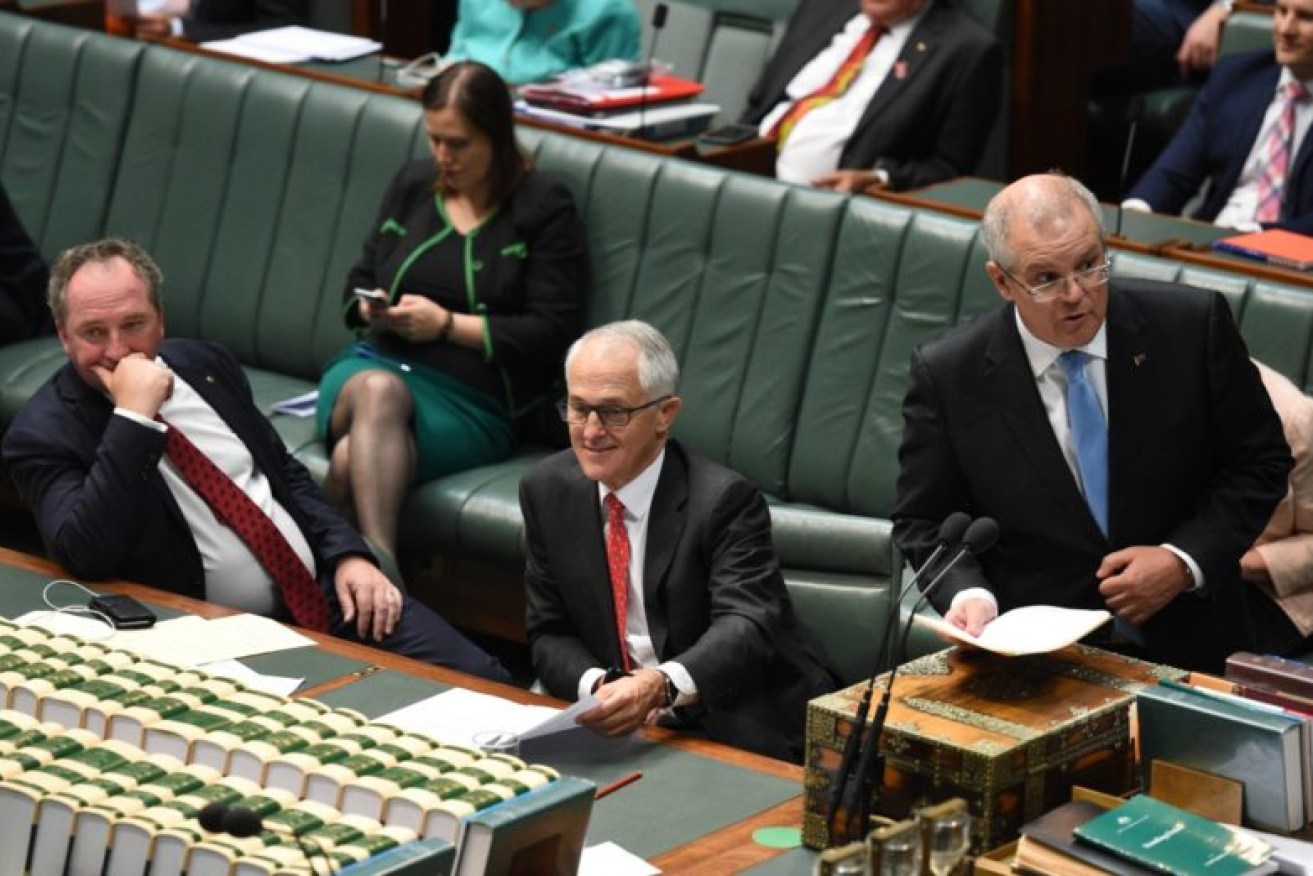The great superannuation revolution of 2016


The Turnbull-Morrison super changes sparked a Coalition backlash. Photo: AAP
Australia’s superannuation system this year received its greatest makeover since then-treasurer Peter Costello lavished mining boom largesse on the nation’s retirees back in 2006.
Implementing the reform package, which finally passed the Senate in November, was a major political challenge for the Turnbull government.
The initial package, introduced with the May budget, included proposals to limit post-tax contributions to $500,000, backdated to July 2007. That elicited angry calls of ‘retrospectivity’ from interest groups, coalition dissidents and the Labor Party.
Eventually Malcolm Turnbull and Treasurer Scott Morrison wilted under the pressure and intra-party threats and a reformed packaged was put forward.
These are the main measures which come in from July 1 2017 (unless otherwise stated).
Maximum balance
The new system will wind back the benefits to wealthy people by restricting to $1.6 million (indexed with inflation) the maximum super balance allowable to earn tax-free income in retirement.
Contribution limits

Super changes sparked a battle in the Coalition. Photo: Getty
Concessional contributions (the ones that cut your tax rate to 15 per cent) will be cut to a maximum of $25,000 a year, down from the current maximum of $35,000 (or $30,000 for those under 50).
Non-concessional or after-tax contributions will be cut to a maximum of $100,000 a year from $180,000 now and will be banned for those with funds of $1.6 million or more. They can be rolled up into three yearly lump sums if you have the cash.
Personal contributions
Until now, if less than 90 per cent of your income came from self employment, you have not been able to make tax concessional personal contributions.

The complicated ’10 per cent income test’ rule will no longer apply to partially self-employed Australians. Photo: Getty
From July 1, 2017 you will be able to and 800,000 people are expected take up the offer. It means if your employer doesn’t offer salary sacrifice options you will be able to make the payments yourself.
From July 1, 2018 people will be able to gross up all their unused concessional caps for up to five years and make one-off contributions as long as their overall balance is under $500,000.
Transition-to retirement will be less attractive as its pensions will now be taxed — at 15 per cent.
The threshold for a hike in the contributions tax from 15 per cent to 30 per cent has also been lowered from $300,000 a year to $250,000.
Average earners
If you are on a low to average income without any excess savings or investments, the new system will probably not change your life very much as most of the changes affect higher or lower income earners.
But there are a couple of possible ways the new system could benefit you.
- Spouse contribution tax offset: The new system allows a tax offset for contributions to the fund of a low income spouse. The income limit will be raised from $13,800 to $40,000 with the maximum rebate of $540 a year tapering down when the spouse income reaches $37,000.
- LISTO: The low income tax offset gives workers earning $37,000 or less a year offset payments of up to $500 a year to ensure the tax on their super (15 per cent) doesn’t exceed their income tax rate. Around 3.1 million low income earners will benefit from the decision to retain this Labor measure that the Abbott government planned to scrap.
Pensioners

Many pensioners will feel the cuts. Photo: Getty
About 318,000 pensioners, or 8 per cent of the total, will have their pensions cut or stopped from January 1, when a tougher test reduces the asset base they are allowed to own outside their home. The measure has been highly contentious and slammed by many.
Surprisingly, the Australian Council of Social Services and the Greens support the change as an equity measure.
Underpayment
Research from Industry Super Australia and Cbus in December found workers were being diddled by unscrupulous employers by as much as $3.6 billion through unpaid contributions.
Another $1 billion is being kept back by employers who use salary sacrifice contributions made by employees as part of their mandatory 9.5 per cent super guarantee payment and pocket the difference themselves. Remarkably this sleight of hand is legal.








